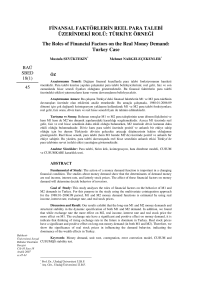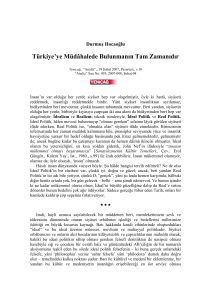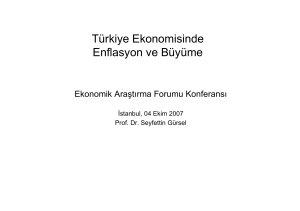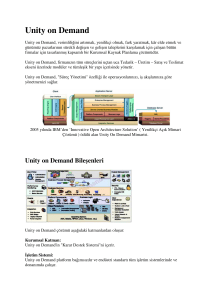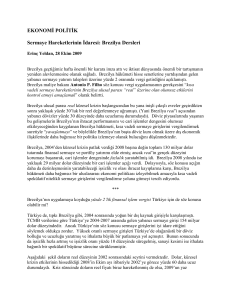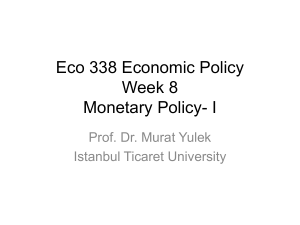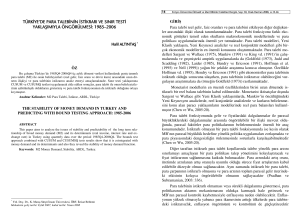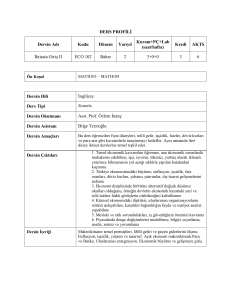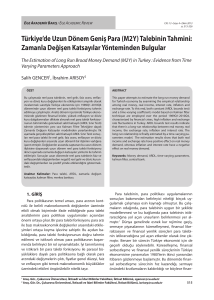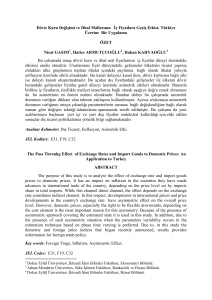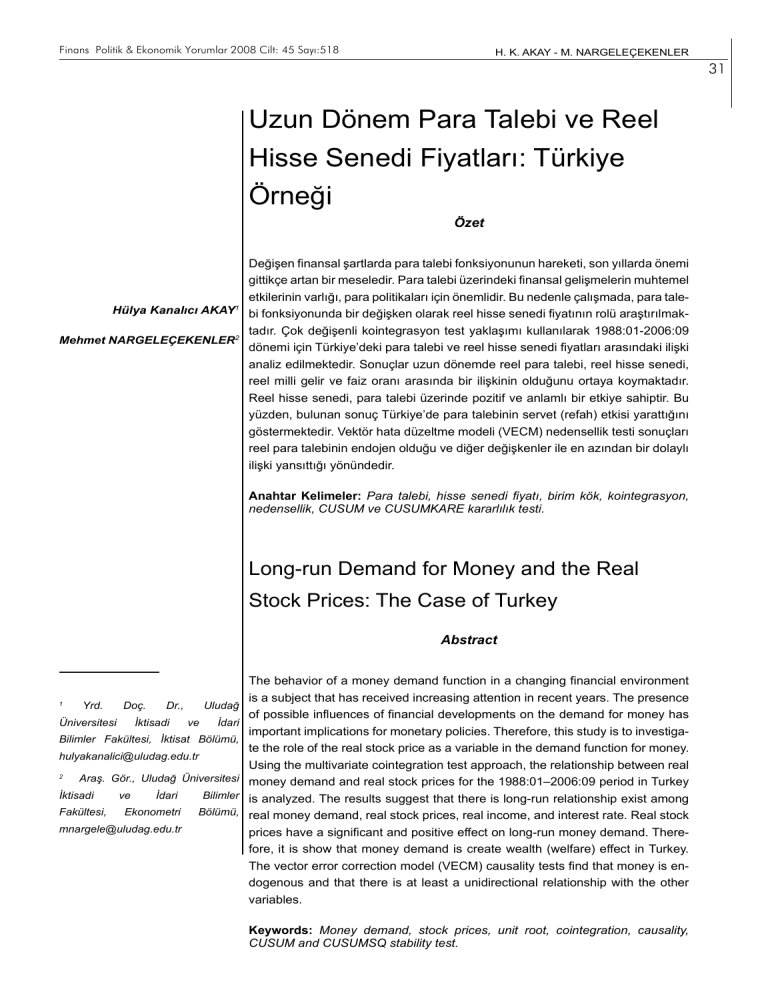
Finans Politik & Ekonomik Yorumlar 2008 Cilt: 45 Sayı:518
H. K. AKAY - M. NARGELEÇEKENLER
31
Uzun Dönem Para Talebi ve Reel
Hisse Senedi Fiyatları: Türkiye
Örneği
Özet
Hülya Kanalıcı AKAY1
Mehmet NARGELEÇEKENLER2
Değişen finansal şartlarda para talebi fonksiyonunun hareketi, son yıllarda önemi
gittikçe artan bir meseledir. Para talebi üzerindeki finansal gelişmelerin muhtemel
etkilerinin varlığı, para politikaları için önemlidir. Bu nedenle çalışmada, para talebi fonksiyonunda bir değişken olarak reel hisse senedi fiyatının rolü araştırılmaktadır. Çok değişenli kointegrasyon test yaklaşımı kullanılarak 1988:01-2006:09
dönemi için Türkiye’deki para talebi ve reel hisse senedi fiyatları arasındaki ilişki
analiz edilmektedir. Sonuçlar uzun dönemde reel para talebi, reel hisse senedi,
reel milli gelir ve faiz oranı arasında bir ilişkinin olduğunu ortaya koymaktadır.
Reel hisse senedi, para talebi üzerinde pozitif ve anlamlı bir etkiye sahiptir. Bu
yüzden, bulunan sonuç Türkiye’de para talebinin servet (refah) etkisi yarattığını
göstermektedir. Vektör hata düzeltme modeli (VECM) nedensellik testi sonuçları
reel para talebinin endojen olduğu ve diğer değişkenler ile en azından bir dolaylı
ilişki yansıttığı yönündedir.
Anahtar Kelimeler: Para talebi, hisse senedi fiyatı, birim kök, kointegrasyon,
nedensellik, CUSUM ve CUSUMKARE kararlılık testi.
Long-run Demand for Money and the Real
Stock Prices: The Case of Turkey
Abstract
1
Yrd.
Doç.
Üniversitesi
Dr.,
İktisadi
Uludağ
ve
İdari
Bilimler Fakültesi, İktisat Bölümü,
hulyakanalici@uludag.edu.tr
2
Araş. Gör., Uludağ Üniversitesi
İktisadi
Fakültesi,
ve
İdari
Bilimler
Ekonometri
Bölümü,
mnargele@uludag.edu.tr
The behavior of a money demand function in a changing financial environment
is a subject that has received increasing attention in recent years. The presence
of possible influences of financial developments on the demand for money has
important implications for monetary policies. Therefore, this study is to investigate the role of the real stock price as a variable in the demand function for money.
Using the multivariate cointegration test approach, the relationship between real
money demand and real stock prices for the 1988:01–2006:09 period in Turkey
is analyzed. The results suggest that there is long-run relationship exist among
real money demand, real stock prices, real income, and interest rate. Real stock
prices have a significant and positive effect on long-run money demand. Therefore, it is show that money demand is create wealth (welfare) effect in Turkey.
The vector error correction model (VECM) causality tests find that money is endogenous and that there is at least a unidirectional relationship with the other
variables.
Keywords: Money demand, stock prices, unit root, cointegration, causality,
CUSUM and CUSUMSQ stability test.

